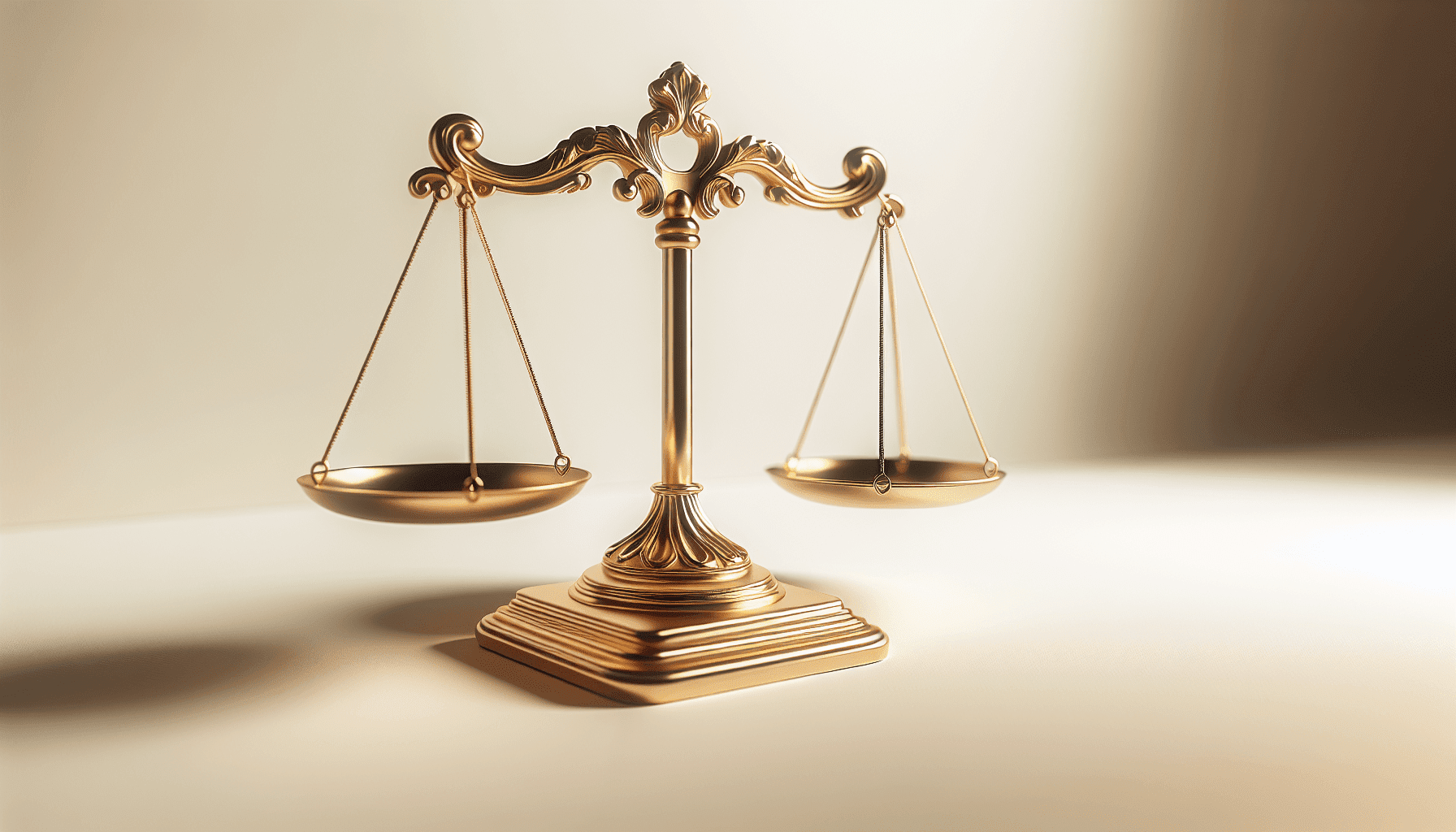In the bustling city of Wellington, a thriving hub of commerce and culture, the importance of dispute resolution cannot be overstated. As conflicts arise between individuals, businesses, and organizations, having an effective way to address and resolve disputes becomes crucial for maintaining harmony and fostering positive relationships. In this article, we will explore the significance of dispute resolution in Wellington and how it plays a vital role in preserving peace and promoting cooperation amongst its diverse community.
Overview of Dispute Resolution
Dispute resolution refers to the various methods and processes used to resolve conflicts or disputes between parties. It involves finding a mutually agreeable solution to the issue at hand, without resorting to litigation or court proceedings. In Wellington, dispute resolution plays a vital role in maintaining social harmony, preserving business relationships, and promoting economic growth. With its focus on finding peaceful resolutions, dispute resolution is a crucial aspect of Wellington’s community and legal framework.
Benefits of Dispute Resolution
Prevents escalation of conflicts
One of the key benefits of dispute resolution is its ability to prevent conflicts from escalating into larger, more contentious disputes. By using effective communication and negotiation techniques, disputing parties can reach a resolution before the issue intensifies. This helps in maintaining harmony within the community and reduces the negative impact that prolonged conflicts can have on the individuals involved.
Saves time and costs
Engaging in litigation can be time-consuming and expensive. Court proceedings often involve lengthy processes, such as filing pleadings, attending hearings, and waiting for a judgment. Dispute resolution offers an alternative that is typically faster and less costly. By avoiding the courtroom and opting for negotiation, mediation, or arbitration, parties can reach a resolution in a more efficient and cost-effective manner.
Preserves business relationships
In the business world, maintaining healthy relationships is crucial for long-term success. Dispute resolution provides a platform for parties to resolve conflicts while preserving their business relationships. By engaging in open and constructive dialogue, parties can find solutions that meet their needs and avoid damaging their professional connections. This allows businesses in Wellington to continue their operations smoothly and sustainably, without the disruptions caused by unresolved disputes.
Types of Dispute Resolution
Negotiation
Negotiation is a common form of dispute resolution that involves direct communication between parties to find a mutually beneficial solution. In Wellington, negotiation is often the first step in resolving conflicts, as it encourages open dialogue and allows parties to express their concerns. This informal process can be conducted directly between the disputing parties or with the assistance of a neutral third party.
Mediation
Mediation is a voluntary and confidential process in which a trained mediator helps parties in dispute reach a mutually acceptable agreement. The mediator acts as a neutral facilitator, guiding the conversation and assisting parties in exploring alternatives. Mediation is widely used in Wellington because it encourages communication and collaboration, enabling parties to retain control over the outcome of their dispute.
Arbitration
Arbitration is a more formal process in which parties present their cases to one or more arbitrators who make a binding decision. Unlike mediation, arbitration involves a third party who acts as a decision-maker. Arbitration is often used in cases where parties prefer a more structured and legally binding resolution. Wellington has several arbitration organizations that provide these services and assist parties in resolving their disputes efficiently.
The Role of Dispute Resolution in Wellington
Promoting peace and harmony
In Wellington, dispute resolution plays a vital role in promoting peace and harmony within the community. By encouraging open communication and offering alternative solutions to conflicts, dispute resolution allows individuals and organizations to coexist peacefully. Through negotiation, mediation, and arbitration, parties can address their differences in a respectful and constructive manner, leading to resolutions that uphold the values of justice and fairness.
Supporting economic growth
Dispute resolution also contributes to the economic growth of Wellington by helping businesses overcome obstacles and maintain productive relationships. By resolving disputes in a timely and efficient manner, businesses can focus on their core operations and pursue opportunities for growth. Dispute resolution processes, such as negotiation and mediation, enable parties to find mutually beneficial solutions, benefiting the local economy and fostering a positive business environment.
Building a strong community
Wellington places great importance on community cohesion and cooperation. Dispute resolution plays a crucial role in building a strong community by offering mechanisms to resolve conflicts in a non-adversarial manner. By promoting dialogue, understanding, and collaboration, dispute resolution fosters a sense of unity and trust within the Wellington community. It encourages individuals to work together towards common goals and maintain a harmonious living environment.
Legal Framework of Dispute Resolution in Wellington
Laws and regulations
The legal framework of dispute resolution in Wellington is supported by various laws and regulations. These laws outline the rights and responsibilities of parties involved in a dispute and provide guidance on the available methods of resolution. For instance, the Arbitration Act and the Mediation Act offer statutory recognition and support for arbitration and mediation processes. By adhering to these legal requirements, parties can ensure the enforceability and legitimacy of their dispute resolution agreements.
Dispute resolution organizations in Wellington
Wellington is home to numerous dispute resolution organizations that provide support, guidance, and resources for parties seeking to resolve their conflicts. These organizations offer professional mediation and arbitration services, ensuring that disputes are managed effectively and in accordance with established principles and standards. Some notable organizations in Wellington include the Wellington Mediation Centre and the New Zealand Dispute Resolution Centre.
Dispute Resolution Processes
Identifying the issue
The first step in any dispute resolution process is identifying the issue at hand. Parties need to clearly define and understand the nature of their dispute before they can move towards a resolution. This involves exploring the underlying interests, concerns, and needs of each party to gain a comprehensive understanding of the dispute.
Gathering information
Once the issue has been identified, parties engage in gathering relevant information to support their position. This may include collecting documents, conducting research, or seeking expert opinions. By obtaining a complete picture of the circumstances surrounding the dispute, parties can make informed decisions and negotiate effectively.
Exploring possible solutions
During the dispute resolution process, parties explore various possible solutions to their conflict. This may involve brainstorming ideas, considering different alternatives, and evaluating the potential outcomes of each option. Through open and constructive dialogue, parties can find common ground and work towards a resolution that satisfies their mutual interests.
Reaching a settlement
The ultimate goal of dispute resolution is to reach a settlement that is acceptable to all parties involved. This involves negotiating the terms of the resolution, considering the needs and interests of each party, and finalizing a mutually agreed-upon solution. A well-structured dispute resolution process ensures that the settlement is enforceable and provides a sustainable resolution to the conflict.
Dispute Resolution Services in Wellington
Public services
Wellington offers a range of public dispute resolution services that are available to all individuals and organizations. These services are often provided by government agencies or departments and aim to ensure equitable access to justice. They include free or low-cost mediation services, legal aid programs, and court-annexed dispute resolution processes. Public services in Wellington play a crucial role in making dispute resolution accessible and affordable for everyone.
Private services
Private dispute resolution services in Wellington are provided by professional mediators, arbitrators, and lawyers who specialize in resolving conflicts. These services are often sought by businesses, organizations, and individuals who prefer a more personalized and tailored approach to dispute resolution. Private services offer parties the flexibility to choose their preferred dispute resolution method and customize the process according to their specific needs.
Specialized dispute resolution providers
Wellington is home to specialized dispute resolution providers that cater to specific sectors or industries. These providers have in-depth knowledge and expertise in the nuances of disputes within their respective fields. For example, the Construction Contracts Act allows for specialized adjudication processes in the construction industry. By engaging specialized providers, parties can benefit from their industry-specific knowledge and experience, leading to more efficient and effective dispute resolution outcomes.
Skills and Qualifications of Dispute Resolution Professionals
Communication skills
Dispute resolution professionals in Wellington must possess excellent communication skills to facilitate productive discussions and negotiations between parties. Effective communication ensures that all parties feel heard and understood, creating an environment conducive to reaching a resolution. Skilled professionals can actively listen, ask relevant questions, and foster open dialogue that encourages the exchange of ideas and perspectives.
Mediation skills
Mediators in Wellington require specialized mediation skills to guide parties towards a mutually acceptable resolution. These skills include impartiality, neutrality, active listening, problem-solving, and negotiation techniques. Mediators must be able to create a safe and respectful space for parties to express their concerns and explore potential solutions. Through their expertise and experience, mediators help parties navigate difficult conversations and find common ground.
Knowledge of relevant laws
Dispute resolution professionals need a strong understanding of the relevant laws and regulations in Wellington. This knowledge ensures that the process is conducted within the legal framework and that any resulting agreements are enforceable. Professionals must be well-versed in legislation surrounding arbitration, mediation, and other dispute resolution methods, enabling them to provide accurate and informed guidance to parties involved in a dispute.
Impartiality and neutrality
Maintaining impartiality and neutrality is crucial for dispute resolution professionals in Wellington. They must approach each case without bias or prejudice and treat all parties involved with fairness and respect. Impartial professionals create an environment of trust and confidence, allowing parties to feel comfortable expressing their concerns without fear of judgment. By remaining neutral throughout the process, professionals can facilitate a balanced and unbiased resolution.
Challenges in Dispute Resolution
Emotional and psychological challenges
Dispute resolution processes can be emotionally and psychologically challenging for parties involved. Conflicts often stem from deeply rooted issues, and addressing these underlying emotions can be difficult. Dispute resolution professionals must be equipped to handle heightened emotions, conflict dynamics, and power imbalances that may arise during the process. By creating a supportive and empathetic environment, professionals can help parties navigate these challenges and achieve a resolution that is satisfactory for all involved.
Difficulties in reaching a settlement
Not all disputes can be resolved through dispute resolution processes. Parties may have conflicting interests or deep-seated disagreements that prevent them from reaching a settlement. In some cases, despite the best efforts of professionals and the application of various techniques, parties may choose to pursue litigation or other means of resolution. Recognizing and addressing these difficulties is an important aspect of the dispute resolution process, ensuring that parties have exhausted all avenues before considering alternative methods.
Future Trends in Dispute Resolution
Emphasis on online dispute resolution
As technology continues to advance, online dispute resolution (ODR) is emerging as a future trend in Wellington’s dispute resolution landscape. ODR offers the convenience and accessibility of resolving disputes through digital platforms, without the need for physical presence. It can involve video conferencing, online documentation, and other technology-driven solutions. By embracing ODR, Wellington can enhance access to justice, particularly in remote areas, and streamline the dispute resolution process for parties involved.
Integration of technology
Alongside the growth of ODR, the integration of technology into traditional dispute resolution methods is becoming increasingly prevalent in Wellington. Automation, artificial intelligence, and data analytics are being utilized to enhance the efficiency and effectiveness of dispute resolution processes. For example, technology-enabled platforms can facilitate case management, document sharing, and scheduling, reducing administrative burdens and improving overall outcomes.
Alternative dispute resolution methods
While negotiation, mediation, and arbitration remain fundamental dispute resolution methods, Wellington is experiencing an expansion of alternative methods. Collaborative law, restorative justice, and hybrid processes are gaining popularity, offering parties more options to tailor their dispute resolution approach. These alternative methods allow for greater flexibility and creativity in finding solutions that meet the unique needs and circumstances of each dispute.
In conclusion, dispute resolution plays a crucial role in Wellington’s society, economy, and legal framework. By preventing conflict escalation, saving time and costs, and preserving business relationships, dispute resolution contributes to a harmonious and thriving community. With a range of services, skilled professionals, and a strong legal framework, Wellington is well-equipped to handle disputes effectively. As new trends in technology and alternative methods emerge, dispute resolution in Wellington continues to adapt and evolve, ensuring efficient and equitable resolution processes for all.



